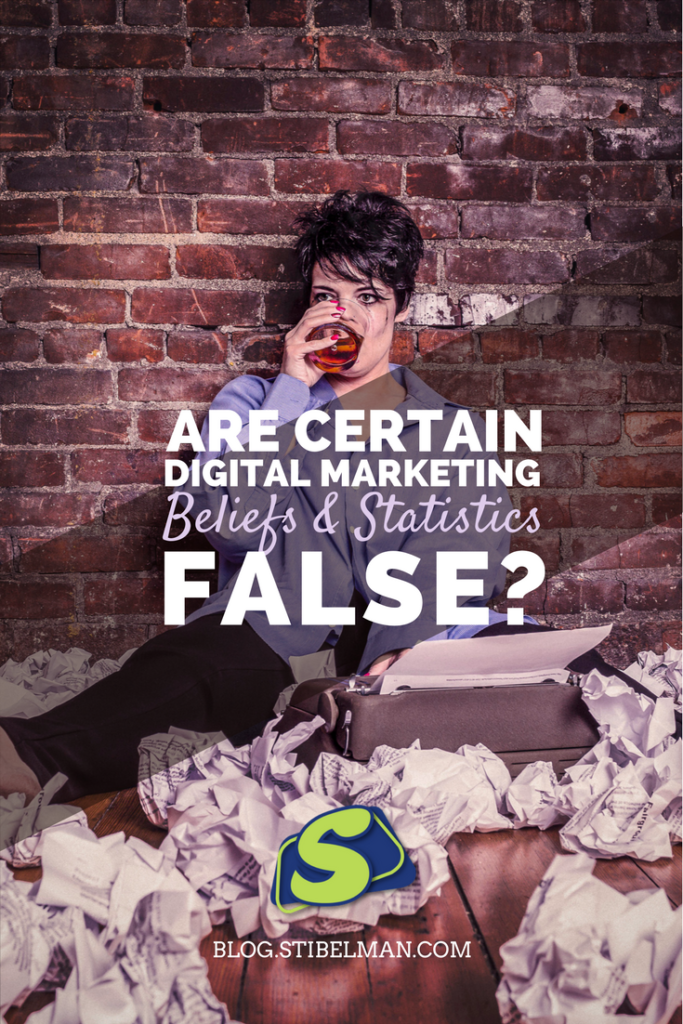Many digital marketing experts talk about magical solutions, and certain digital marketing beliefs and statistics
They promise extremely high numbers for extremely low prices.
Let’s take a look at a recent research done by Ebiquity that confronts what marketers believe to be true, with facts, to which they (according to Bob Hoffman, the Ad Contrarian) are immune.
The Shit Gets Real
If you remember, I’ve already wrote an article warning you not to mess with social media marketing unless you know what you’re doing.
It’s important to understand what you’re investing your time and money into, especially if the person selling it to you is a marketer.
We tend to accept stuff as it is only because we deem it plausible and it goes with our belief system. This doesn’t make it necessarily true though.
In a recent study done by Ebiquity and commissioned by RadioCentre, marketers have been asked for their opinions about the power of several marketing channels, both on and off-line.
Let’s check it out
Targets the right people in the right place at the right time
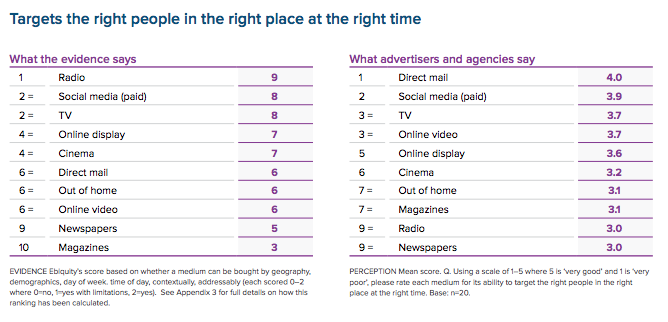
According to marketers, radio is to be discarded almost, and their precious digital methods are winners here. It sounds logical since one would believe that digital methods are the only ones where we are in complete control of who will see our ad and when.
Which of course is not entirely true.
No marketer has control over any digital platform. It’s the other way around. The platform will decide who will get seen when and where, while taking your requests into consideration. Their choices are finally affected by money, of course.
The good news: While digital is not a perfect platform, small businesses with low budgets can use some of the free features (like Google For Business) to enhance their brand awareness to whoever is looking for their business or products.
Increases campaign ROI
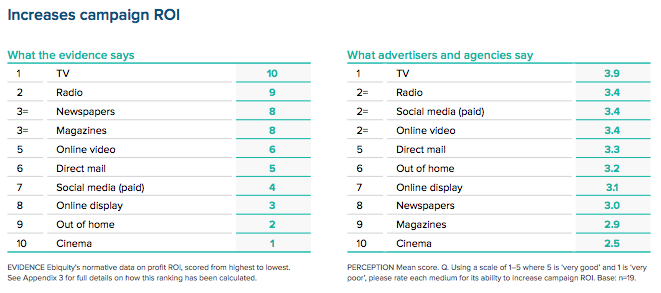
We keep hearing about ROI and the magic of Social Media being the best investment for our ad buckazoids. But sadly, with all the elements playing against us, like fake users, and platforms manipulating advertising, we have no absolute certainty as to wether our investment will give us fruits.
The good news: As long as you work with free features, like interesting and engaging organic posts on social media and UTM links for better monitoring on Google Analytics, your ROI is going to be positive.
Increases brand salience
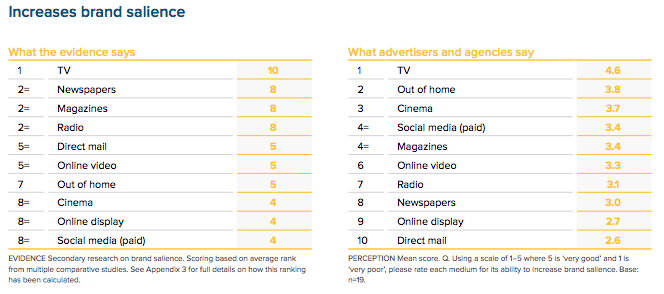
For some reason which escapes me, many marketers are absolutely convinced that social media the only key to a brand’s success and that it will single-handedly determine the rise or fall of a brand’s reputation.
Well the reality is that it isn’t that important, nor is the online presence of a brand to bring in the moola.
People still prefer to go into a potato-state trance in front of the TV and will gobble up what they sell there.
The good news: While not crucial to one’s brand’s success, social media is where people go to lament, vent or ask for help in case of a bad customer experience with the brand, service or product. This is a golden opportunity for you to receive free beta-testing (a little bit too late now, but still…) and better yourself, your service or your products, according what clients actually need.
Maximises campaign reach
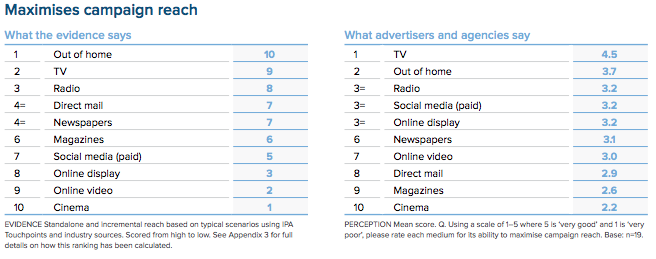
Viral posts are some sort of golden chalice to reach for, and people will go out of their minds to try to achieve virality.
Truth is that not everybody (at least the real human beings’ accounts) is on social media. Not everybody on social media sees ads, and not all ads’ reach statistics are truthful (shocking, isn’t it?).
The good news: For what it’s worth, some people live on social media. They get their news from it (fake or otherwise) and perhaps do not even own a TV or look around while outside. That public is reachable online (Trying very hard not to mention the buzzword Millennials here).
Transparent third party audience measurement
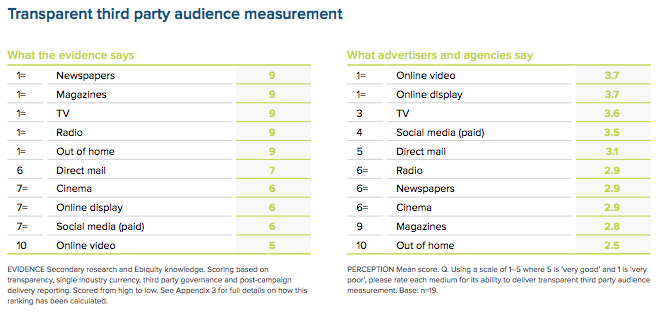
We’re always aiming at people, hoping they will click, buy and repeat.
These people are shown to us by measuring systems like Facebook Insights, Google Analytics and others. But what if these numbers are false? What if these people are fake? What if the clicks are for no real goal other than earning a few credits off some crappy click-exchange website?
The good news: You can still base your research and measurements according to in-house methods like questionnaires, polls and pixels installed on your website to get some real insights about what people think about you and your brand, service or product.
The overall score

Yes, marketers believe social media is the shiz, and that magazines are useless. That doesn’t mean that all marketers are frauds, uninformed or a waste of money.
Just like you would research a brand before acquiring its product, or signing up to its service, you should do the same with marketers, just to make sure your money is going to be well spent and the information you get is correct.
You can read another interesting analysis of this research by Prof. Mark Ritson on marketing week, which has much deeper insights than mine, and has been the inspiration for this article.
